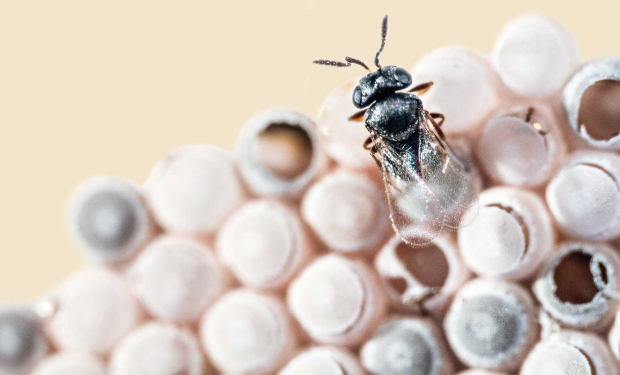
A female Trissolcus japonicus parasitoid wasp emerging from parasitized Halyomorpha halys eggs
at the USDA-APHIS Quarantine Facility, Corvallis, Oregon. (Courtesy Christopher Hedstrom, Oregon State University)
Research to find a natural enemy that suppresses the brown marmorated stinkbug is showing promise, according to Oregon State University entomologists.
Biological control research led by the U.S. Department of Agriculture, in conjunction with several state agriculture departments and state universities, is looking good, said Dr. Nik Wiman, OSU postdoctoral entomologist.
USDA is using Oregon quarantine facilities to screen several parasitoid wasps that are being studied across the country under expedited review, Wiman said.
The parasitic wasp Trissolcus japonicus from Asia is a promising candidate, although more study is needed. The wasp lays eggs in the stinkbug’s eggs, which prevent the pest from developing.
Researchers must first make sure any newly introduced insect will not have a negative impact on existing environments and species. Before any release, the new wasp must be known to be host specific, targeting brown marmorated stinkbug and not other stinkbug species. Some stinkbug species are beneficial predators.
Biological control can take years to become established because the natural enemy has to increase to large enough populations that it can suppress the targeted pest.






Leave A Comment